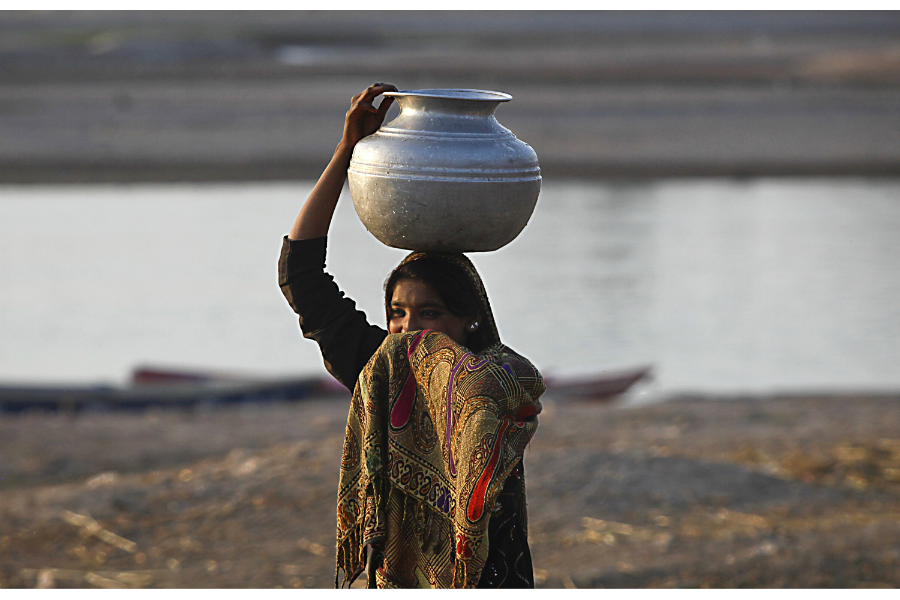Hydropower helps households in off-the-grid areas of Pakistan
Loading...
| Ahmedabad, Pakistan
In her home in the remote Hunza valley, Gul Mehreen smiles as she places a tea kettle on the electric stove in her immaculate kitchen.
As she makes tea for guests, the farmer jokes about "how amazingly enjoyable" cooking has become since a small-scale hydropower generator was installed nearby. Her visitors nod and burst into happy laughter.
In this picturesque village, perched above the gushing turquoise waters of the Hunza river, and with a view of the 8,000-meter (26,000-foot) Rakaposhi mountain, in Pakistan's Karakoram range, women once had to walk for miles to collect firewood each day.
For the last eight years, however, hydropower has supplied the village's energy needs, and life has gotten much easier, said Mehreen, who has an electric stove, electric oven and electric lights, fitted with energy-saving bulbs.
"With the availability of electricity we have been relieved of such burdensome work," she told the Thomson Reuters Foundation. "The initiative holds great meaning in our lives."
The village's community-run micro hydropower station – built in 2008 by the Aga Khan Rural Support Programme with backing from the United States Department of Agriculture and the Pakistan Poverty Alleviation Fund – produces about 190 kilowatts of electricity an hour.
That's enough to supply power to 144 homes in Ahmedabad and nearly 110 in the nearby villages of Sultanabad and Faizabad.
Such small-scale hydropower plants are proving a key way to provide power in remote, off-grid areas of power-short Pakistan, while at the same time helping protect the environment.
Besides making life easier for people in the villages, in Pakistan's Gilgit-Baltistan province, hydropower has slowed deforestation – rampant in many mountain areas of Pakistan – and cut landslide risks as more trees are left standing to hold the soil, local people say.
"Now no one chops down trees to harvest fuelwood," said Ghulam Raza, an environmentalist who works in the area with a range of non-governmental organizations. As a result, natural forests in the mountains nearby "are coming back to life," he said.
Social development activist Ghulam Sarwar, who works for the Aga Khan Rural Support Programme, said hydropower has changed Ahmedabad from a village that "lived in darkness" to one where children can now study by electric light at night, and no longer miss school to help their families collect firewood.
"Now our children don't skip school. They find enough time at home to study and finish their schoolwork even after sunset," said Ali Gohar, a member of the community committee that maintains the hydropower plant.
Community leaders say if they can find the funding, they intend to expand the project and provide electricity to an additional 1,400 households in nearby Karimabad and Altit villages.
Shahana Khan, a development projects manager for the Aga Khan Rural Support Programme, said small-scale hydropower is a natural for mountain villages with access to rivers, and is a good way of ensuring access to clean energy.
A key, she said, is that such facilities "are owned, run and maintained by the communities."
Pakistan could generate around 100,000 megawatts of hydroelectricity, through both large and small hydropower projects, according to a 2006 report by the Pakistan Alternative Energy Development Board.
Sixty percent of that could come at spots identified in the river-rich, mountainous northwest of the country, it said.
Jamil Uddin, who manages development projects in the Gilgit-Baltistan region for the Aga Khan Rural Support Programme, said his organization, in collaboration with Pakistan's Alternative Energy Development Board and the Pakistan Poverty Alleviation Fund, plans to install more than 100 small-scale hydropower plants in the upper Indus Basin areas of Chitral district and Gilgit-Baltistan province in next few years.
Much of the funding, from international and national non-governmental organizations, is already in place, he said.
Uddin said the plants will cut deforestation, reduce Pakistan's carbon footprint and provide off-grid mountain communities with affordable, clean and reliable electricity.
Ahmedabad's women, including Nasreen Gul, a 27-year-old vegetable farmer, say the benefits are clear.
"When we burned wood for fuel, the smoke from the stove would spread throughout our home and we would cough and feel pain in our eyes," she said.
"Now cooking food and doing other chores in the kitchen has become considerably easier and stress-free. We use an electric stove as electricity is much cheaper and readily available," said Gul – who now has an electric iron and an electric washing machine as well.
• Reporting by Saleem Shaikh and Sughra Tunio; editing by Laurie Goering. This story originally appeared on the website of the Thomson Reuters Foundation, the charitable arm of Thomson Reuters that covers humanitarian news, women's rights, trafficking, corruption, and climate change. Visit www.news.trust.org.







